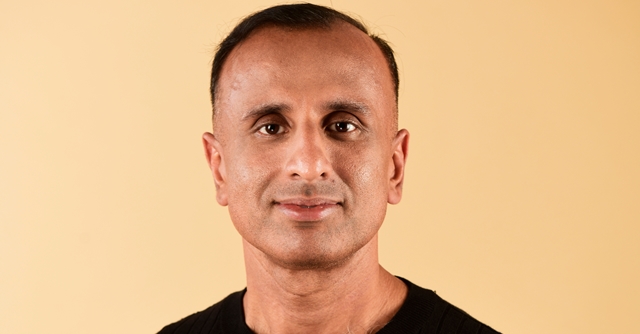
Healing with Algorithms: The Future of Healthcare through Generative AI


Misdiagnosis, a Global Challenge
The healthcare industry today stands grossly affected by the issue of misdiagnosis. If reports of the World Health Organisation (WHO) are to be believed, diagnostic errors lead to severe harm to a large number of patients annually, with notable variations across different regions. For instance, around 5% of adults in high-income countries are misdiagnosed during outpatient visits, while in the case of middle-income countries, the rates are higher because of limited access to quality diagnostic tools and primary care services.
The Scope of Generative AI

The question that thus creeps in: Is this issue irreversible or is there a solution? Well, generative AI with its revolutionary technology has the potential to reshape the healthcare system today. With correct implementation, it holds the power to help build a world where diseases are easily and accurately identified in their earliest stages and each patient receives the best possible treatment. Owing to its massive potential in the healthcare sector, the overall market value of generative AI is estimated to reach above $400 billion by 2032.
Transforming Medical Imaging
Variational Autoencoders (VAEs), Generative Adversarial Networks (GANs) and other generative AI algorithms are currently transforming the system of medical imaging. They play a critical role in analysing medical images like MRIs, X-rays and CT scans with acute precision, even in cases where the scans are of low resolution. In addition, these algorithms play a critical role in identifying conditions like heart disease and cancer early, often before the initial symptoms set in. This is primarily due to their efficiency in image segmentation, anomaly detection, disease classification and effective prediction of patient outcomes.

Revolutionizing Telemedicine
The power of generative AI algorithms is also revolutionising the field of telemedicine by automating image analysis, thereby facilitating rapid diagnoses even in remote locations. This has the power to save innumerable lives while improving patient outcomes massively.
Generative AI has the potential to analyse diverse complex datasets, including lifestyle data, medical records, real-time health metrics and genetic predispositions. These help identify anomalies and patterns that may otherwise often go undetected. This, in turn, reduces misdiagnosis and helps in developing personalised treatment regimes. Additionally, such algorithms can predict drug interactions, including drug-food and drug-drug constituent interactions. This stands critical in avoiding unwanted triggers and unprecedented pharmacological effects.

Accelerating Drug Discovery
Generative AI, with its tremendous possibilities, helps in accelerating the drug discovery process, thereby reducing both cost and time. These algorithms simulate the behaviour of molecules and predict their interactions with biological targets, thereby identifying promising drug candidates at a substantially faster pace when compared to conventional methods. Today, many leading pharmaceutical companies leverage this feature. A notable example includes the development of a drug for idiopathic pulmonary fibrosis by BenevolentAI, which was done in collaboration with AstraZeneca. AI has been leveraged to expedite the drug discovery process substantially, attaining milestones that would have otherwise taken a much longer time and at only a fraction of the traditional costs. Such acceleration facilitates new treatments for diseases that were previously incurable, thereby offering hope to millions of patients across the world.
Reshaping Medical Education and Administrative Efficiency

Generative AI is also transforming medical education. It develops realistic simulations of diverse medical conditions, thereby helping students practice diagnostic and treatment skills in a controlled and safe environment. This, in turn, helps to bridge the gap between theory and practice, thereby producing more confident and competent healthcare professionals.
Beyond this, generative AI also has the potential to automate the administrative tasks carried out in the healthcare industry. Some of the areas of automation include scheduling staff, creating discharge summaries, and care coordination notes. In turn, it will help reduce human error while letting healthcare professionals concentrate on patient care. In addition, generative AI also has the capability to predict the rate of patient admission. This will help hospitals prepare for emergencies and optimise their resources.
Challenges and Ethical Considerations

Generative AI has multiple benefits, but integrating it within healthcare presents several challenges. The primary concern is data privacy, as a huge amount of personal health information needs to be stored for generative AI to operate. It is paramount to ensure that these data are anonymised and stored securely. Additionally, algorithmic bias is the second major concern that needs to be addressed to prevent disparities in healthcare outcomes. Hence, it is vital to train AI systems to achieve effective healthcare outcomes across diverse populations by exposing them to a wide variety of datasets.
Last but not least, AI systems must not be entrusted with the responsibility of making the final decision. They can assist in diagnostics and treatment plans, but only with the intervention of the human mind. This alliance between human proficiency and AI capabilities will help maintain compassionate and nuanced patient care. However, to prevent technology misuse, these must be done keeping all ethical principles and mandates in mind.
What Lies Ahead in Healthcare with Generative AI?

In spite of these hurdles, it is impossible to overlook the myriad of benefits hidden in generative AI for healthcare. If the power of these AI algorithms is harnessed responsibly, it will open the threshold to a new world of advancements in patient care and medical research. It will also help to create an affordable and accessible healthcare system for all. But amid all, one question lingers: What actions must be taken to harness the exclusive power of generative AI completely to tackle both apparent and concealed burdens of healthcare while keeping all ethical concerns in mind?

Saurav Kasera
Saurav Kasera is the Co-Founder of CLIRNET (Creators of DocTube).
